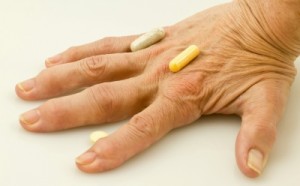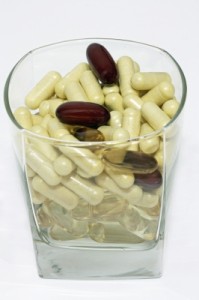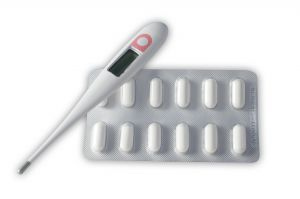Chronic fatigue syndrome is not yuppie flu, nor is it an imaginary disease- chronic fatigue syndrome (CFS) is an autoimmune disorder that causes debilitating chronic pain, perpetual exhaustion, dizziness, and low immunity for no apparent reason. Some chronic fatigue sufferers, such as author Laura Hillenbrand, were first diagnosed with CFS at a young age, and continue to use vitamin B12, acupuncture, and massage in an effort to minimize pain triggers.
Chronic fatigue syndrome symptoms
It’s not just tiredness; CFS feels like your whole body is falling apart. Comorbid with fibromyalgia, many scientists are toying with the idea of combining both chronic pain disorders into one disease- fibromyalgia-chronic fatigue syndrome.
Symptoms of chronic fatigue syndrome include:
- Intense muscular pain
- Severe exhaustion, despite getting enough sleep and not overexerting oneself
- Gastrointestinal problems
- Environmental hypersensitivity,
- Fevers
- Vertigo
Also read: Chronic Fatigue Syndrome- What is it, exactly?
Ten celebrities with chronic fatigue syndrome
Please note: Vita Sciences has no affiliation with any of the celebrities mentioned.
1) Laura Hillenbrand– author of Seabiscuit, which was made into an Oscar-nominated motion picture, Laura Hillenbrand was first diagnosed with chronic fatigue syndrome at the age of 19. A former jock, she was struck with a sudden fever while traveling back to college after spring break.
Pain symptoms escalated; she started suffering swollen glands, stomach cramps, and extreme vertigo. Once the picture of youth, she was suddenly unable to walk around her college campus.
Laura visited many doctors who were unable to diagnose her phantom pain symptoms, and she was told multiple times that it was all in her head, that the only thing wrong with her was her “attitude problem.”
As she told Elle magazine, “Well-meaning people would say, ‘You need psychiatric care.’ ” Eventually, she lost her circle of friends, and even her family failed to understand her crisis.
Laura’s chronic pain management includes getting vitamin B12 shots, herbal supplements, restrictive dieting, steroid hormones, and acupuncture.
Also read: Tired of being Tired all the Time…It’s Tiring!
 2) Suzanne Shaw– Dancing on Ice champ was diagnosed with chronic fatigue syndrome after complaining to her doctor about swollen limbs, joint stiffness, night sweats, and severe tiredness.
2) Suzanne Shaw– Dancing on Ice champ was diagnosed with chronic fatigue syndrome after complaining to her doctor about swollen limbs, joint stiffness, night sweats, and severe tiredness.
3) Cher- In 1992, singer-actress Cher had to take a few years off from her hectic schedule to recuperate from sudden CFS.
4) Stevie Nicks– In 1987, chronic fatigue syndrome symptoms drove legendary pop singer Stevie Nicks into pain pill addiction.
 5) Flea– Red Hot Chili Peppers bassist Flea was diagnosed with chronic fatigue syndrome in 1993.
5) Flea– Red Hot Chili Peppers bassist Flea was diagnosed with chronic fatigue syndrome in 1993.
6) Michelle Akers- Former Olympic soccer player Michelle Akers documented her struggle with CFS in one of her biographies.
7) Blake Edwards– Film producer-director-screenwriter Blake Edwards is noted for his work in the Pink Panther movie series, Breakfast at Tiffany’s, and Days of Wine and Roses. In his bio Remember Me, he mentioned his battle with chronic fatigue syndrome.
 8) Michael Crawford– Best known for his Broadway performance in The Phantom of the Opera, singer Michael Crawford is currently recuperating from severe chronic fatigue syndrome.
8) Michael Crawford– Best known for his Broadway performance in The Phantom of the Opera, singer Michael Crawford is currently recuperating from severe chronic fatigue syndrome.
9) Keith Jarrett– Celebrated jazz pianist Keith Jarrett had to take a break from his music career in 1995 to recover from CFS.
10) David Puttnam– The British film producer of Chariots of Fire and The Killing Fields also suffers from myalgic encephalomyelitis (ME), another term for chronic fatigue syndrome.
Please tell us…
Can you name any other famous people with chronic fatigue syndrome? What about celebrities who raise CFS awareness? We welcome your comments, suggestions, and questions!
Spread the love…
Know anybody who could be helped by this information? Please share this article on Facebook, Google+, or by emailing a link.
Read more about CFS and vitamin B12 deficiency:
6 Degrees of Vitamin B12- B12 Deficiency and Autoimmune Disease
Brain Fog: 20 Causes and Symptoms
9 Conditions that Mimic Fibromyalgia and Vitamin B12 Deficiency
Sources:
Chronic Fatigue Syndrome: A Celebrated Author’s Untold Tale
List of people with chronic fatigue syndrome
Images:






























